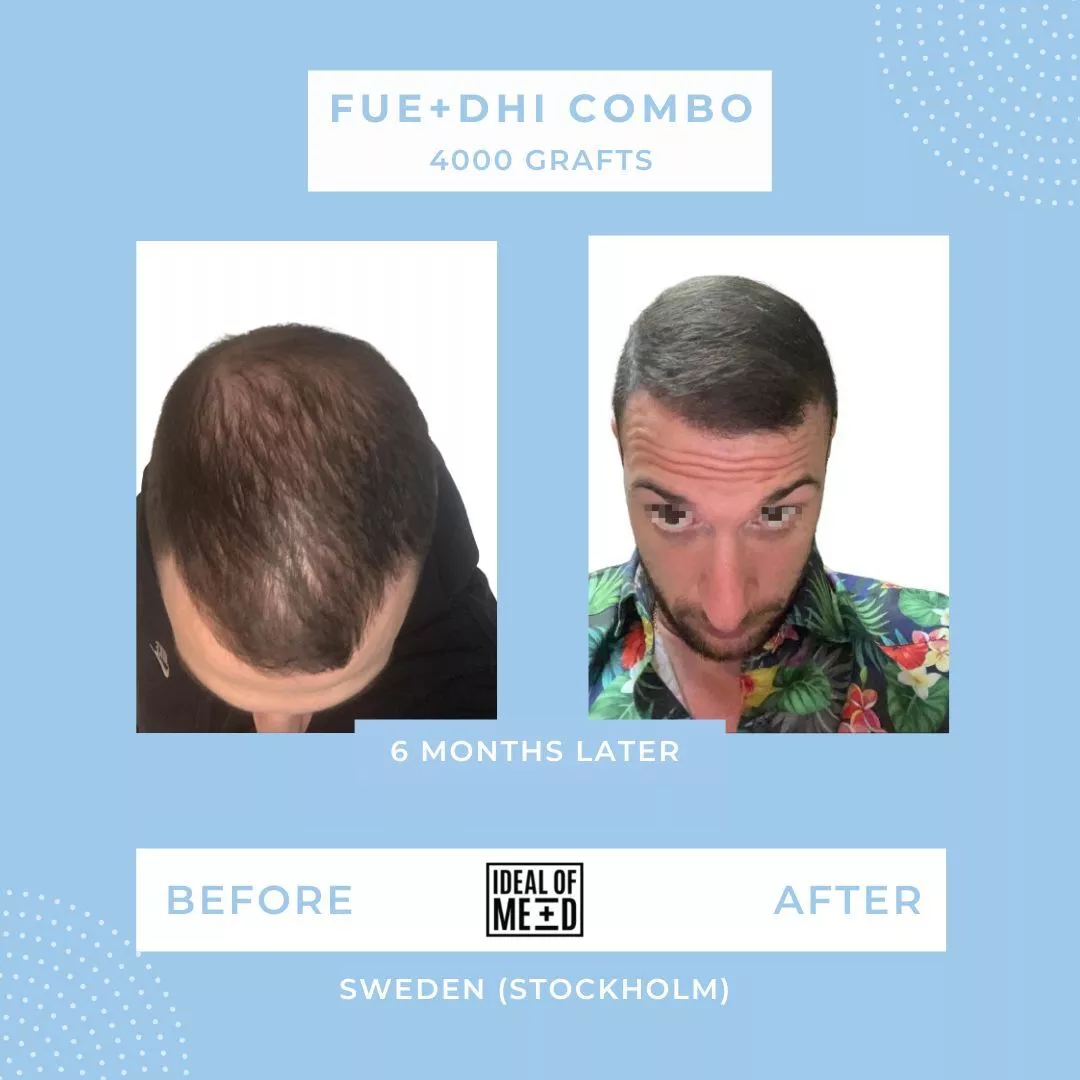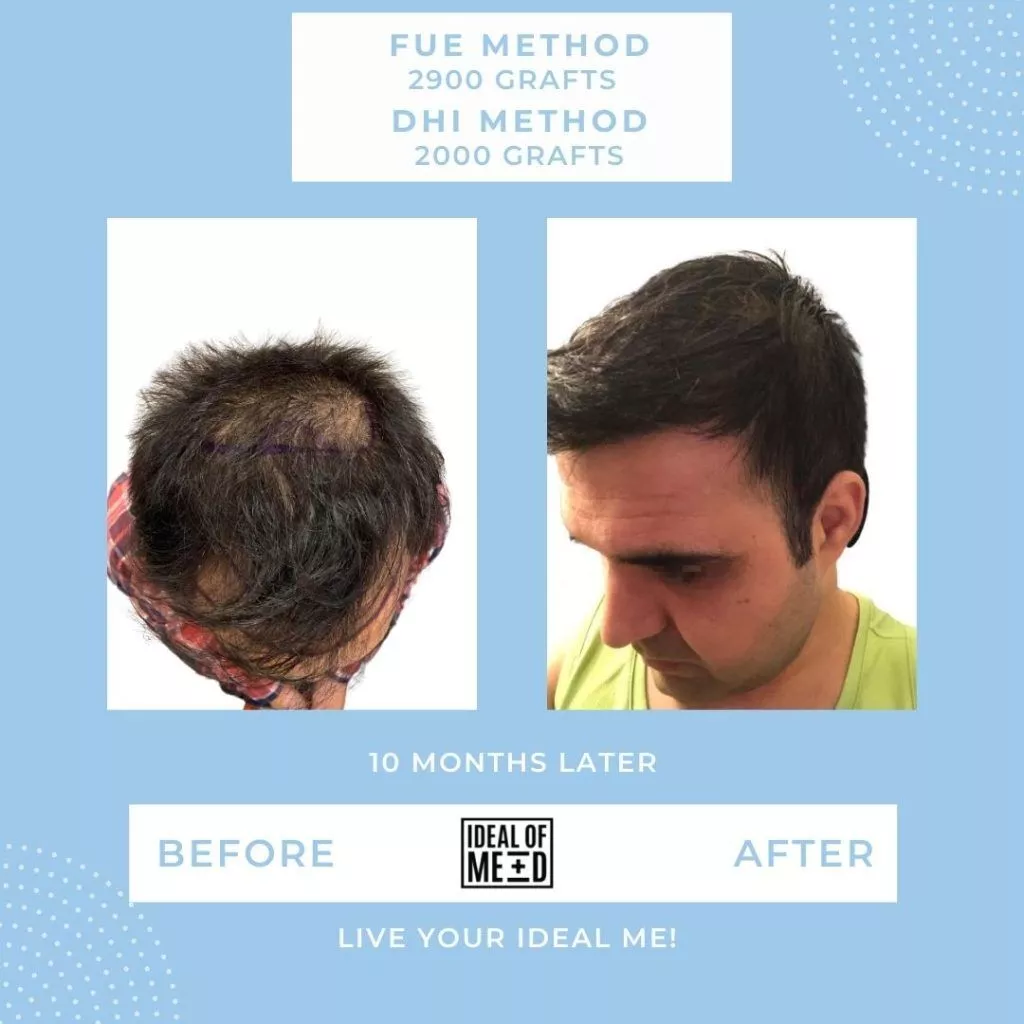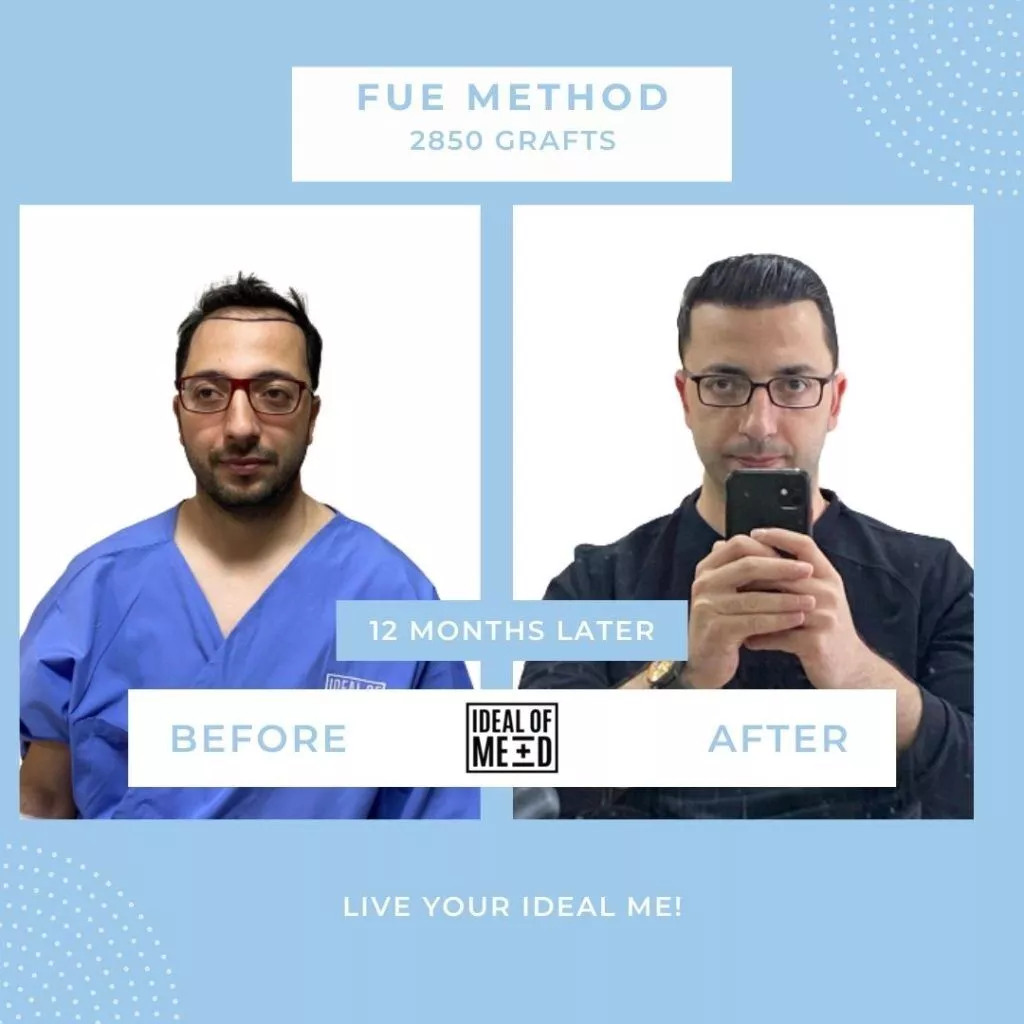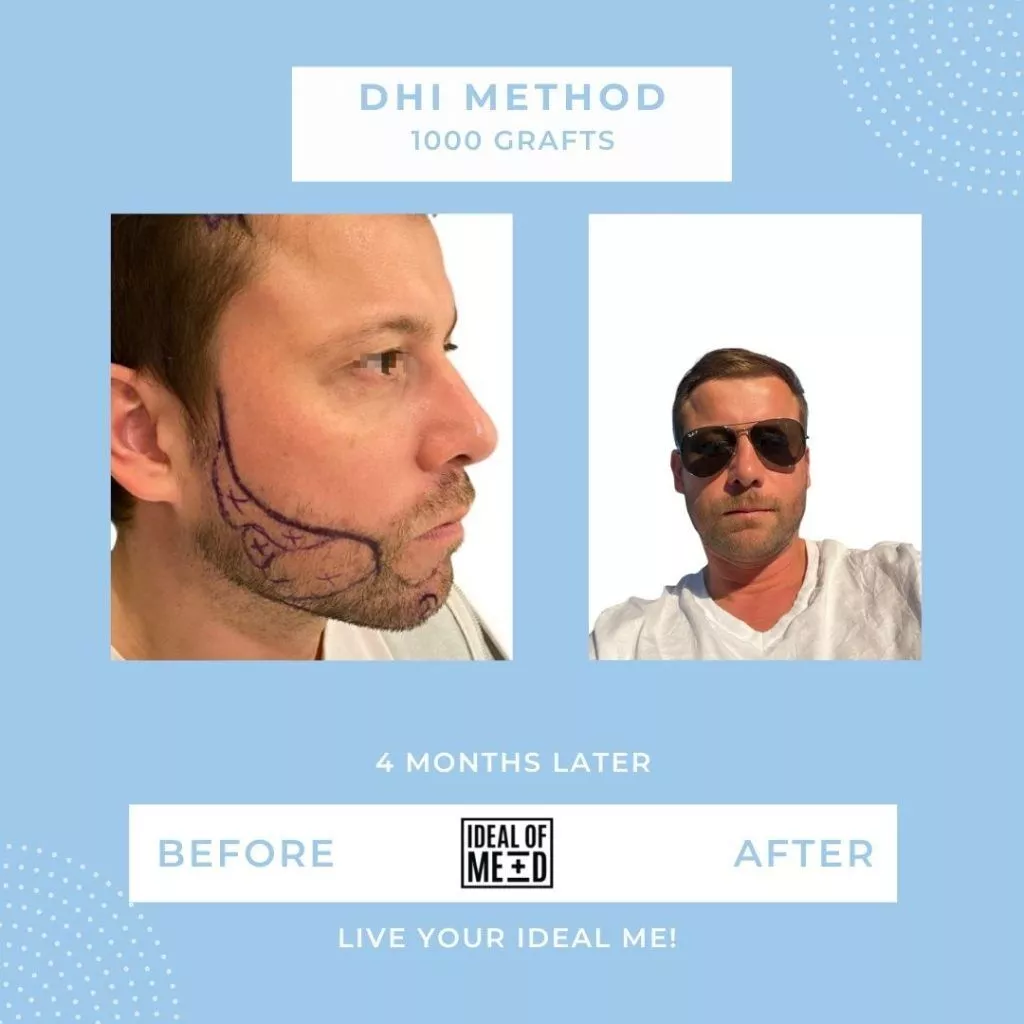Hair Transplantation Recovery Time
- Methods
- Recovery Time
- Pros and Cons
- Aftercare
If you’ve made the decision to get a hair transplant, then you may be wondering what hair transplantation recovery time you expect, and whether or not time off work is needed. Join us as we go into all the necessary details you’ll need about hair transplantation recovery time.
Table of Contents
The Process After Getting a Hair Transplant
Hair transplants, as well as beard transplants, are known to be very simple cosmetic surgery procedures. There is no general anaesthesia, and there are virtually no scars. They also make recovery from them quite simple. Because of how simple and requires minimal downtime to recover from, FUE (Follicular Unit Extraction) in particular is quite popular. However, there are a few aspects of hair transplant recovery time that you should be aware of.
One of the main reasons people strain for going for a hair transplant is because they’re unsure of what the hair transplantation recovery time looks like and don’t want to take many days off of work. Thankfully, the recovery time for a hair transplant is concise and your work colleagues will be none the wiser. You’ll be able to return back to work 2-5 days after your hair transplant procedure.
While the hair transplantation recovery time does vary from one individual to the next, the downtime is fairly short, and the time it takes to see your final results are considerably longer. It can take anywhere from 12 to 18 months after your hair transplant to see your final hair transplant results.

Trouble? Scan this QR code with your phone to open WhatsApp. Your privacy is important to us.
Hair Transplant Recovery Timeline
The hair grafts won’t be entirely resilient for the first two weeks following your hair transplant, hence advise precaution. During this time, any head blows could damage the head could be damaging to the final results and hair transplantation recovery time.
We advise reducing exercise during the first two weeks of recovery in order to be safe. Additionally, this lessens the accumulation of sweat and dirt in the exposed areas. To aid in hair transplantation recovery time, patients are required to take the prescribed medication as needed. Ensure you strictly adhere to our surgeon’s post-operative recommendations as you progress through the healing process.
1 to 5 Days After Hair Transplant
Any bandages can be taken off 1 to 5 days after surgery, depending on the hair transplant clinic you go to, but the recipient area and grafts shouldn’t be touched. Your scalp will be most vulnerable to injury during this hair transplantation recovery time, so make sure to protect it by donning a cap. It’s crucial to try to minimise any swelling during this time, especially if it’s present around the eyes or on the forehead. Your donor area’s tiny incisions will heal promptly if you choose to have an FUE hair transplant. Within one week after the hair transplant, the majority of patients’ donor areas will be healed.
Within this time, your hair will be washed for the first time after your hair transplant by a nurse. Many hair transplant clinics offer this service to ensure you don’t damage your newly transplanted hair by washing your hair by yourself. Most individuals choose to return back to work 2-5 days after their hair transplants, whereas others tend to take a whole week off. This will ultimately depend on you as a person and how you feel during your hair transplantation recovery time.
2 to 4 Weeks After Hair Transplant
Once you reach this point in your hair transplantation recovery time, you may notice that your transplanted hair is starting to fall out. This is known as “shock loss”, there is no reason for concern and is completely normal. Your own hair will replace the hairs that have fallen out.
3 Months After Hair Transplant
Your hair transplantation recovery time has proceeded dramatically since your hair transplant, and three months after your hair transplant, you should start to notice the first signs of hair growth in the recipient area where you experienced the shock loss. As you progress through the hair transplant cycle to the anagen stage, you can expect fewer adverse effects and benefit from better hair regeneration because of continued aftercare.
12 to 18 Months After Hair Transplant
Once you hit this milestone, your hair transplantation recovery time will have come to an end. You should be able to see the final results of your hair transplantation. You’ll have gained your full confidence back!

Speeding up the Hair Transplantation Recovery Time
One of the most frequently asked questions about a hair transplant is what the hair transplantation recovery time is and what can be done to speed up the recovery time. It is possible to speed up the healing process by following some recommendations.
- Follow the aftercare procedures: Your doctor will go over the necessary hair transplant aftercare with you. Following the aftercare procedure will assist in giving you a speedy recovery.
- Get enough rest: The first day after your hair transplant, you will be required to rest for the entire day. In the days following this, you should still try to get as much rest as possible as rest assists with speeding up the hair transplantation recovery time.
- Avoid strenuous exercise and activities: Avoid exercises and activities that will lead to blood rushing to your head or excessive sweating.
Psychological Recovery Time After Hair Transplant
Men and women who experience hair loss may experience negative psychological repercussions. It is clear that experiencing thinning hair, and going bald can lower one’s self-esteem. Furthermore, it can also result in graver issues including anxiety and depression. These problems can significantly hinder a person’s day-to-day activities. Both men’s and women’s psyches place a high value on hair, so losing it could be detrimental to your mental health. By undergoing a hair transplant, a person may be able to recoup both their physical and mental losses.
One of the most important benefits of having hair transplantation is the rise in one’s sense of self-worth that follows the process. There is a connection between having a full head of thick, healthy hair and having a youthful, attractive appearance. When it comes to hair transplant recovery time, many people often only consider the physical recovery from the transplant and not the mental one. As time goes on after your hair transplant, you’ll find yourself slowly starting to gain the confidence you once had that had been lost along with your hair. Once you reach the end of the hair transplantation recovery time, and you can see your final hair transplant results you’ll feel like a brand new person and will have undergone a whole physiological recovery!

Conclusion
Regardless of your hair transplantation recovery time, you’ll soon see that that time passes in no time at all. Before you know it, you’ll find yourself enjoying the full effects of your hair transplant, both mentally and physically














Frequently Asked Questions
While the downtime from a hair transplant is very short, it will take your scalp a couple of weeks to fully heal from the surgical procedure, and around 12 months before you can see your final results. It may take a couple of months before you recover psychologically from the procedure.
Absolutely. It is possible for men and women to suffer negative psychological effects when they lose hair. It is evident that thinning hair and going bald can lead to low self-esteem. In addition, it can also lead to more serious issues such as anxiety and depression.
Yes. Your doctor will go over some aftercare routines that you’ll need to follow in order to speed up your recovery time. This can include taking certain medications, getting a lot of rest and avoiding strenuous exercises.
Last updated by Macaela on November 28, 2022. Content medically reviewed by D. Demirel, MD.
